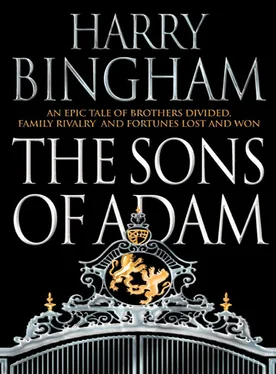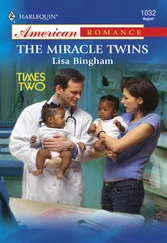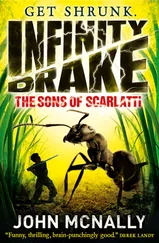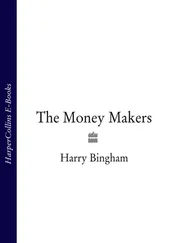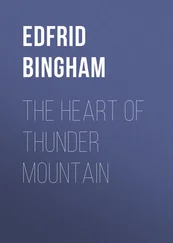HARRY BINGHAM
The Sons of Adam

To my beloved N,
My writing partner
May this marriage be laughing for ever, Today, tomorrow and all the hours of Paradise.
Rumi (1207–1273)
Cover
Title Page
Dedication
Prologue
Part One
1
2
3
4
5
6
7
8
9
10
11
Part Two
12
13
14
15
16
17
18
19
20
21
22
23
24
25
26
27
28
29
30
31
32
Part Three
33
34
35
36
37
38
39
40
41
42
43
44
45
46
47
Part Four
48
49
50
51
52
53
54
55
56
57
58
59
60
61
62
63
64
65
66
67
68
69
70
71
72
73
74
75
76
77
78
79
80
81
82
83
84
85
86
87
88
89
90
91
92
93
94
95
96
97
98
Part Five
99
100
101
102
103
104
105
106
107
108
109
110
111
112
113
114
115
116
117
118
119
120
121
Part Six
122
123
124
125
126
127
128
129
130
131
132
133
134
135
136
137
138
139
140
141
142
143
144
145
146
147
Part Seven
148
149
150
151
152
153
154
155
156
157
158
159
160
161
162
163
164
Historical Note
By the Same Author
Copyright
About the Publisher
The Somme Battlefield, France, 23 August 1916
A man crawls forward on his belly. He’s covered with mud. It’s night-time.
The man is young, a British lieutenant. Although he moves carefully, there’s urgency in his movements, something breathless, something desperate. It’s a dangerous attitude at the best of times. Out here in no man’s land, just three dozen yards from German lines, the attitude seems almost suicidal.
For almost three minutes, the lieutenant moves in silence. Every now and then there is the crack of a rifle or the whine of bullets. He appears to ignore them. Eventually, he comes to a shallow shellhole and rolls down into it. He catches his breath a moment, then shouts.
‘Tom! Tommy! Tom Creeley!’
For a moment, the night is silent. A scrappy moon plays hide-and-seek. Earth and flint scrape beneath the lieutenant’s boots. In the distance, big guns thump the horizon.
Then a voice answers. It’s no more than a groan, but the lieutenant is instantly alert.
‘Tom? Tommy? Is that you?’
His hope is painfully evident. He climbs quickly out of the shellhole in the direction of the voice. He wriggles forwards, hardly concerned to keep his head and body low.
Within forty seconds, he has covered almost thirty yards. The voice belongs to a young boy, a British infantryman, horribly wounded in legs and belly. The boy is obviously dying.
A look passes across the lieutenant’s face. It’s one of painful disappointment. Whoever this boy is, it isn’t Tom Creeley. But the look passes.
‘All right, sonny,’ says the lieutenant. ‘I’ve come to get you home.’
The boy’s face is shockingly white in the moonlight. ‘I’m hurt pretty bad, sir.’ His voice is a whimper. He is afraid of death.
‘Hurt? Nothing too bad, son. We’ll get you patched up in no time and on a train back to England. How’s that?’
‘Oh, yes, sir! Oh, yes!’
The lieutenant nods. In one hand, he holds a canteen of water to the boy’s mouth. ‘Drink this.’ The boy drinks. As he does so, the lieutenant’s other hand snakes round in the mud, holding a revolver. The boy lowers the canteen. His eyes are grateful.
‘Good lad,’ says the lieutenant. He holds his gun to within an inch of the boy’s head and fires. The boy drops back, dead.
The lieutenant lies low for a minute or so, then briskly searches the boy’s pockets for any personal papers. He takes whatever there is, then, once again, flattens himself against the earth. He lifts his head and shouts.
‘Tom? Tommy? Tom Cree-leeeeeee? ’
And this time there’s no answer. No answer at all.
Rise early, work hard … strike oil.
J. Paul Getty
Whitcombe House, Hampshire, 23 August 1893
The beginning?
To hell with beginnings. Beginnings are excuses, apologies for failure. If things turned out disastrous – and they did – then that had everything to do with the way three young men chose to behave, nothing to do with the way things started out.
On the other hand, people are only human. Once a ball starts rolling it’s hard to stop it. A beginning is a beginning, and on this occasion, the beginning wasn’t just bad.
It was awful.

It happened like this.
A small boy, a seven-year-old, stands in a kitchen. He’s building himself a blackberry pudding as big as his head. The cook stands by, face red in the firelight, managing pots of water boiling on the stove, a newly made pot of coffee steaming to the side. The scene is domestic, quiet, happy.
Upstairs, the little boy’s mother, Lady Pamela Montague, is in labour for the fourth time. Of her first three children, only one – the blackberry-pudding-guzzling Guy – survived more than a few weeks. She and her husband, Sir Adam, are understandably anxious this time, but everything is proceeding normally. The doctor and midwife are in attendance.
So far, so nothing.
No births. No deaths. No hatreds. And best of all: no beginnings.
But, in a second, that changed.
All of a sudden there was a bang at the door, the jiggle of a latch, a blast of cool air. A tiny girl flitted in, as though blown by the wind. A sweep of rain washed the step behind her.
‘Please miss, please sir, please help.’ The tiny girl bobbed and curtsied, desperate with anxiety. ‘My ma’s ill. She’s having a baby, only it’s got stuck, and she says she can’t, and she’s gone as white as anything, and my dad said to run to the big house for help as fast as I could, and please miss, please miss, please miss.’
Mrs White, the cook, brought the girl further into the light.
‘Are you Jack Creeley’s little girl, dear?’
‘Please, miss. Yes, miss. Sally Creeley, and my ma’s having a baby and –’
‘Well, dear, it never rains but it pours. You just pop yourself down while I go and speak to Sir Adam. If you want you can –’
Guy stopped her.
It wasn’t a big interruption, but it was a decisive one. He raised his hand, like a man stopping a horse.
‘No need, Cookie. I shall tell him myself.’ He lifted his pudding, the coffee for his father, then turned to the little girl. ‘You can go back home and when the doctor is no longer wanted here, he can come to you. For the time being, he’s required here.’
Читать дальше
